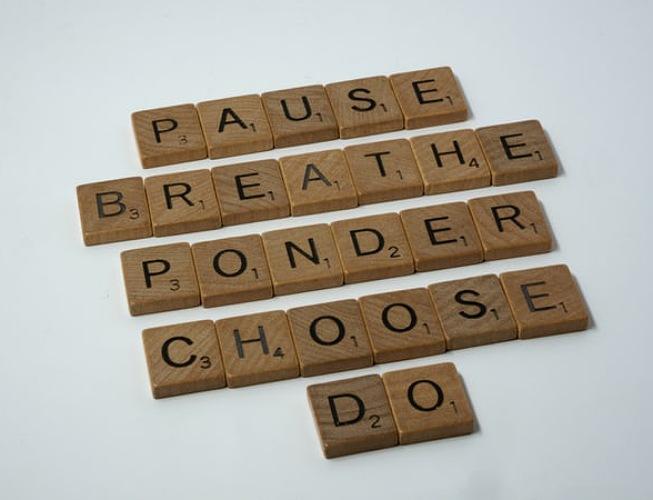Managing Your Emotions in Time of Crisis

There is a whole lot of energy and lots of opportunities that we can harness if only we learn to manage our emotions. The world as we know it is constantly in crisis. In our little universes, we encounter crises at some point that impacts our emotions. The ability to keep our emotions, (volatile as they are) in check is what differentiates an emotionally intelligent person from one who is not.
What Are Emotions?
Wikipedia defines emotions as biological states associated with the nervous system. brought on by neurophysiological changes variously associated with thoughts, feelings, behavioral responses, and a degree of pleasure or displeasure. There is currently no scientific consensus on a definition. Emotions are often intertwined with mood, temperament, personality, disposition, creativity, and motivation.
Simply, emotions are feelings we get that affect our moods and our actions. Unlike thoughts, emotions are harder to control and can be more dangerous if they are not managed properly.
These emotions are familiar to us: sadness, anger, happiness, disgust, surprise. They feature in our everyday lives and are triggered by various experiences. Acting on every emotion that we feel could be dangerous and this is why we need to learn emotional management.

4 Reasons Why Managing Your Emotions is Important
1. Overcoming Difficulties
When you’re in a difficult situation, the emotions you will most likely feel are sadness, anger, and rage. These emotions could spiral out of control and be unhealthy if not properly managed. Bitterness over a difficult situation could lead to depression, substance abuse, and suicide.
These emotions can come slowly and be difficult to diagnose if you are not careful. Are you stressed and feeling trapped to the point that you are snapping at everyone who comes close to you or smashing things against the floor? That’s your cue to calm down, take deep breaths, and distract yourself with something nice.
You could be at the lowest point of your life where everything is just not working out and your emotions are all over the place. Managing your emotions is a skill that smart people imbibe because it is useful and it never fails in crises.
Imagine you are on a train that is about to run into a mountain. Everyone is freaking out and screaming their lungs out but you’re calm. You’re not calm because you’re out of danger, you’re calm because you have a hold of your emotions. With you present in that place and with your leadership, more people have a chance of getting out of that train alive.
2. Keeping Healthy Relationships
Even though emotions are what create relationships most times, emotions should not be what runs a relationship. Because relationships are very tricky things (a simple statement can bring a decade long relationship to the ground), managing your emotions in all the more important in relationships. Here are a few ways to do that:
a. Be Slow to React
Taking a moment to breathe before you say or do anything could make a world of difference. Jumping right into the argument could blow things out of proportion so fast it could leave you reeling.
So next time your loved ones/friends say or do something hurtful to you, the first thing you should do is take a deep breath and think about something else. To take things a step further,
b. Leave The Environment
Getting out of the room where a heated argument is about to start can help you clear your mind and center your energy. You could take a walk around your lawn, do something fun, or get your hands busy with something. All these are proven ways of reducing tension and anger. You however need to make your loved one understand that you aren’t running away from him/her, you’re only just trying to keep the peace. They would understand and most likely apologize for their behavior.
c. Communicate
Keeping issues bottled up will only create a build-up of emotions that would erupt and cause disaster one day. The wise thing to do is attend to your hurts as soon as you can calmly handle them. This eliminates the chance for anger to grow into a rage, for displeasure to grow into hate.
3. Living a Successful Life
Managing your emotions and impulses help you have a successful life in so many ways. Some of which are:
- Helps you have a better workplace relationship
- Makes you a more focused and reliable person
- Helps you achieve your goals and more.
4. Physical Health
When you’re happy, your body produces oxytocin which is a hormone that helps reduce stress. This means you will go about your duties and still feel great after. Positive emotions also lower blood pressure and boost your immune system.
Negative emotions on the other hand can lead to back pain, depression. So yes, managing your emotions matters a lot to your physical health.

What Are Crisis Situations?
These are those difficult happenings that test our strength and endurance. These experiences happen at various times in our life and may leave adverse consequences if not properly managed.
Types of Emotional Disorders/Disturbance
These include (but are not limited to):
- anxiety disorders;
- bipolar disorder (sometimes called manic-depression);
- conduct disorders;
- eating disorders;
- obsessive-compulsive disorder (OCD); and
- psychotic disorders.
Source: Parentcenthub
Unhealthy options wrongly used to manage emotions are:
- Alcohol
- Drugs
- Smoking
6 Tips To Managing Your Emotions in Time of Crisis
1. Understand Your Emotions
Understanding emotions is a very integral part of managing them. Most people choose to ignore emotions instead of taking the time out to understand them. Sure, ignoring your emotions is a short and easy route, yes the result is usually undesirable.
2 How Do I Feel? And Why?
When you are in crises, it is important to step back and try to examine the feelings that you are currently experiencing. How do I feel? Do I feel angry? Do I feel sad? Have I been feeling depressed lately? When you get answers to these questions, It is easier for you to try to understand why you are feeling that particular emotion.
Most of us stop at that how do I feel? stage and begin to react to whatever we feel. If we are experiencing negative emotions our reactions are usually negative and harmful to those around us. Taking a deep breath or some time out to understand why we are feeling those emotions would give us the necessary time to attain the level of calmness needed in reaching a reconciliation.

3. How Do I Calm Down?
It takes a level of understanding of your emotions for you to know the things that calm you down. When you have set what makes you feel better? An analysis of the situations in which you thrive would help you know how to get help out of emotional crises. What is your safe place? Who is your safe place? In crises, It is best to find your safe place or find someone who makes you feel safe.
People have reported that having conversations with their best friends or lovers, doing crises has helped them stay in control of their emotions.
4. Empathize With Others
Is it weird that empathizing with the emotions of others also helps you understand your own emotions? When you empathize you put yourself in someone else’s shoes in a good way. It creates a kind of emotional intelligence and makes you better at managing your emotions. The process of trying to understand someone else’s point of view helps to prevent rash actions and decisions that are popular in crises.
5. Relaxation, Meditation, and Exercise
Relaxation relieves stress and less stress means less emotional outbursts. Crises cause stress which in turn makes us emotionally vulnerable and prone to lashing out at objects and people around us. Meditation helps us relax and tap into the serenity of the world. Exercises help you release oxytocin that makes you feel better.
6. Try Thinking Positively More Often
Positive thoughts have great effects on your emotions and general wellbeing. Negative thoughts impact negatively on your emotions and can create crisis moments. Norman Vincent in his book “The Power Of Positive Thinking” introduced us to the spiritual aspect of positive thinking in these two subheadings:
a. Decide to Be Happy
We create our happiness in this life. Happiness is achievable for us if we apply the right formula. One way of choosing happiness is to cultivate the habit of being happy. When you develop the happiness habit, life becomes more enjoyable every day. Because habits are something you can cultivate, you have the power to create your happiness.
You develop the happiness habit by thinking happy thoughts. Make a mental list of happy thoughts and run them through your mind throughout the day. If an unhappy thought pops in, eject it by substituting a happy thought.
b. Expect the Best and Get the Best
When you expect the best in life, you get the best. When you expect the worst, that’s what you get. When you change your mental habits to a state of constant belief instead of doubt, everything becomes possible. This requires faith.

Final Word: Managing your emotions and learning to control them is a very important way to create a healthy and successful life for ourselves and those that we encounter daily. Being emotionally mature or able to control your emotions does not mean you will not feel sad or angry when crises come. What it means is that you will be able to prevent yourself from exploding. Using the simple steps in this article, I hope you go on to practice emotional management and have a blissful life. Bye.
All images are sourced from unsplash.com
She's a beauty and an exquisite lady who enjoys the high life in writing and poetry. Her writing style and prowess is innovative and focuses on the feminine perspective, bringing nothing but wholesome gratification to the African, Afrocentric and Afro-American women at large

